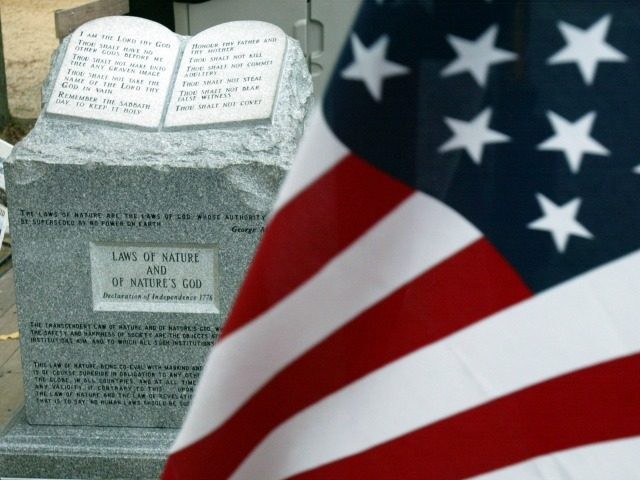Despite America’s official status as a secular nation without an established national religion, the constitution of every U.S. state makes reference to the divinity, according to a new report by the Pew Research Center.
God or the divine “is mentioned at least once in each of the 50 state constitutions and nearly 200 times overall,” according to a new analysis by the Pew Center.
God is explicitly mentioned at least once in 46 state constitutions, while the constitutions in Colorado, Iowa and Washington refer to a “Supreme Being” or “Supreme Ruler of the Universe,” and Hawaii’s constitution states that the people of Hawaii are “grateful for Divine Guidance.”
Along with the 116 mentions of God, and 14 mentions of a Supreme or Sovereign Being, there even seven mentions of the word “Christian,” Pew found.
The U.S. Constitution, by contrast, does not invoke the divinity at all. The only explicit mention of God is found in the date the Constitution was written: “in the Year of our Lord 1787,” a reference to the year of Christ’s birth.
The First Amendment to the Constitution expressly states that Congress “shall make no law respecting an establishment of religion, or prohibiting the free exercise thereof.” The Founders created a national government for a very few limited purposes, and there was nearly universal agreement among them that if there was to be legislation on religious or moral matters, it should be undertaken by state and local governments.
Even Thomas Jefferson, who was not known for his piety, noted: “Certainly, no power to prescribe any religious exercise, or to assume authority in religious disciple, has been delegated to the General [i.e., federal] Government. It must then rest with the States, as far as it can be in any human authority.”
While the United States never had a national church, some individual states did. The last state church wasn’t disestablished until 1832, and even afterward many states retained religious tests for public office or required prayer in schools.
In his famous 1789 Thanksgiving Day Proclamation, George Washington made note of America’s duty of gratitude toward God.
“Whereas it is the duty of all Nations to acknowledge the providence of Almighty God, to obey his will, to be grateful for his benefits, and humbly to implore His protection and favor,” Washington said, “I do recommend…the People of these States to the service of that great and glorious Being.”
He went on to call all Americans to “unite in most humbly offering our prayers and supplications to the great Lord and Ruler of Nations and beseech Him to pardon our national and other transgressions, to enable us all, whether in public or private stations, to perform our several and relative duties properly and punctually; to render our national government a blessing to all the People.”
Although America’s Founders were justly opposed to the idea of a national church, they believed almost universally, as George Washington declared in his Farewell Address, that of “all the dispositions and habits which lead to political prosperity, religion and morality are indispensable supports.”
Let us with caution, Washington added, “indulge the supposition that morality can be maintained without religion.”
Follow Thomas D. Williams on Twitter Follow @tdwilliamsrome

COMMENTS
Please let us know if you're having issues with commenting.